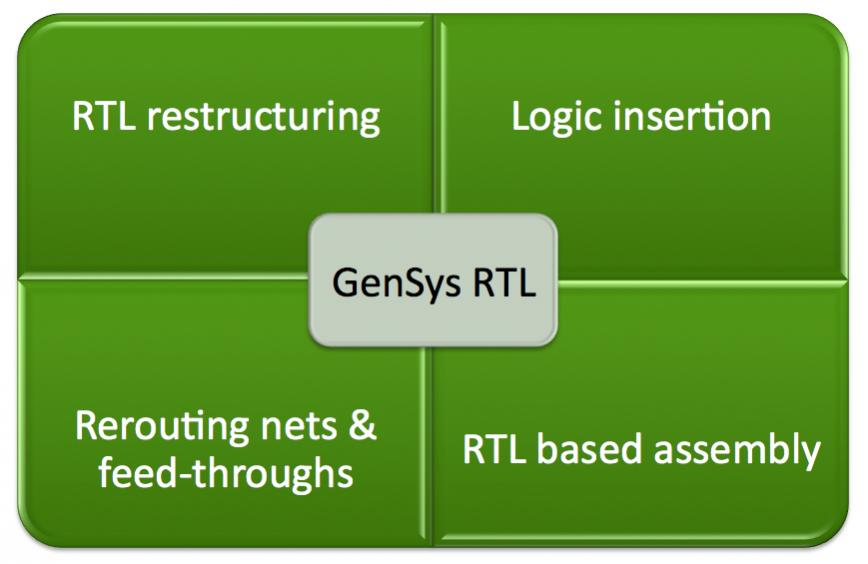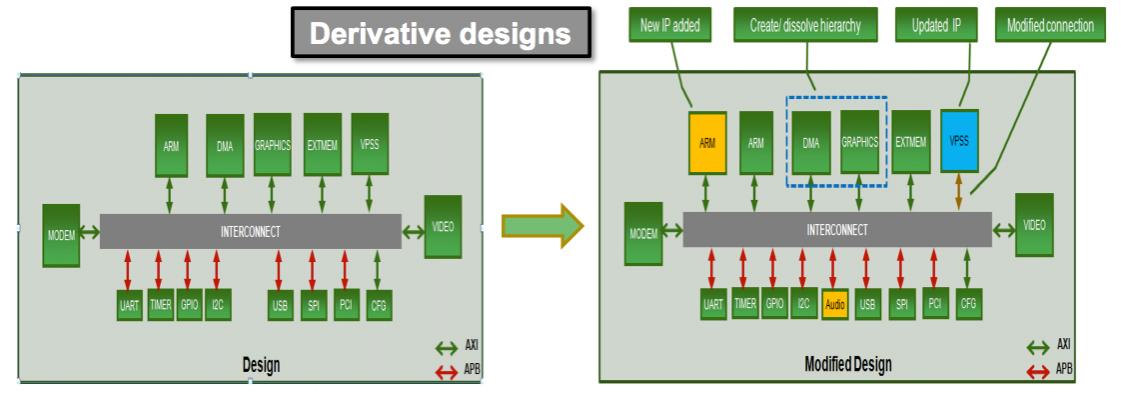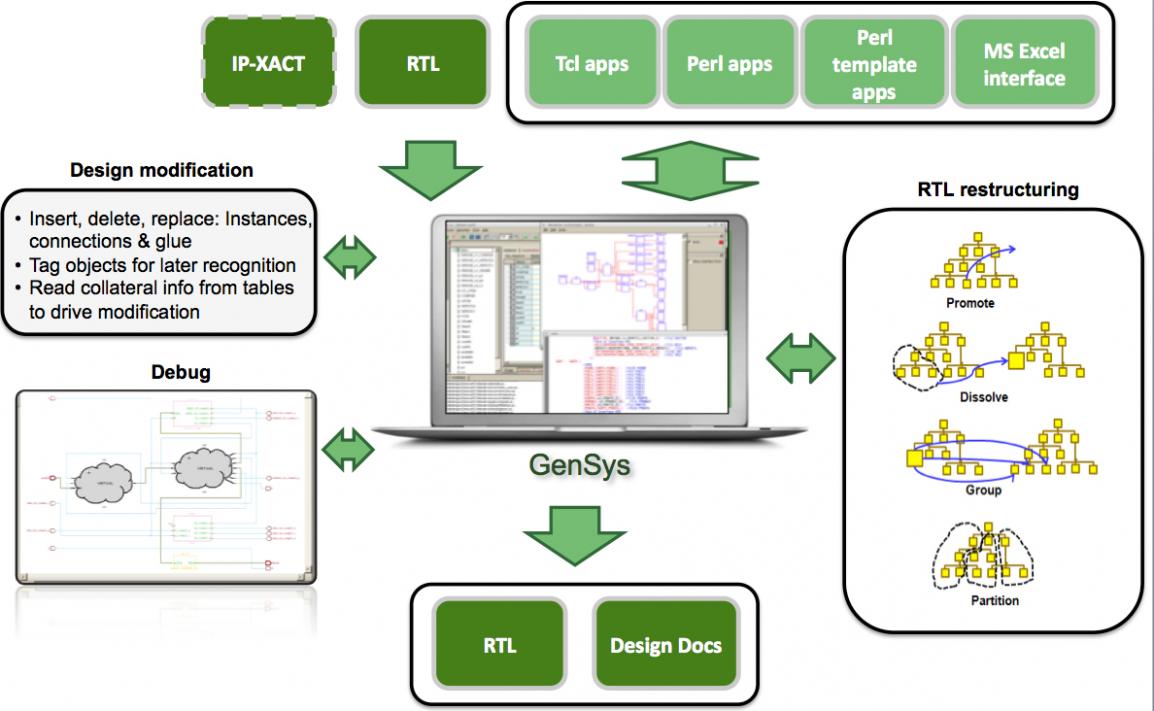 Increasingly, SoC designs consist of assembling blocks of pre-designed IP. One special case is the derivative design where not just the IP blocks get re-used but a lot of the assembly itself. For example, in the design below some blocks are added, some blocks are updated, some hierarchy is changed. But the bulk of the design remains unchanged from the original to the derivative. The trick in doing a derivative design is to disturb the original design as little as possible so that you don’t have to rework anything that you (or your colleagues) did previously in the original design.
Increasingly, SoC designs consist of assembling blocks of pre-designed IP. One special case is the derivative design where not just the IP blocks get re-used but a lot of the assembly itself. For example, in the design below some blocks are added, some blocks are updated, some hierarchy is changed. But the bulk of the design remains unchanged from the original to the derivative. The trick in doing a derivative design is to disturb the original design as little as possible so that you don’t have to rework anything that you (or your colleagues) did previously in the original design.

Doing a derivative design allows efficient re-use of an existing platform, can be done in a comparatively short time and at a much lower cost. Reusing most of the platform for a number of derivatives makes the return on the original investment much more attractive, as pointed out by Gary Smith. A good example of a derivative design is Apple’s A5 chip for the iPad which was clearly an A4 chip with some incremental changes such as a 4 core rather than a 2 core Imagination GPU.

Obviously for a derivative design like this you want to leverage the original design as much as possible and are not going to start from scratch. You’d like to have a tool that helps you manipulate the design at the block level, adding blocks, restructuring logic and so forth.
Atrenta’s GenSys is just such a tool. It allows for RTL restructuring, logic insertion, rerouting nets and feedthroughs and RTL-based assembly. To learn more, next Thursday, June 27th at 9am, Bernard Murphy the CTO of Atrenta will be presenting a webinar RTL Restructuring for the Rest of Us. The webinar will last 30 minutes.
Dr. Murphy has over 25 years experience in design, sales, marketing and business development. He previously held senior positions with Cadence Design Systems, National Semiconductor and Fairchild. Dr. Murphy received both a Bachelor of Arts and D.Phil. in Physics from Oxford University.

Details, including a link for registration, are here.
Share this post via:








CEO Interview with Aftkhar Aslam of yieldWerx